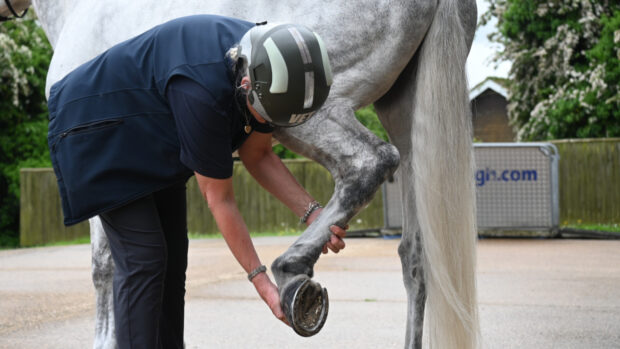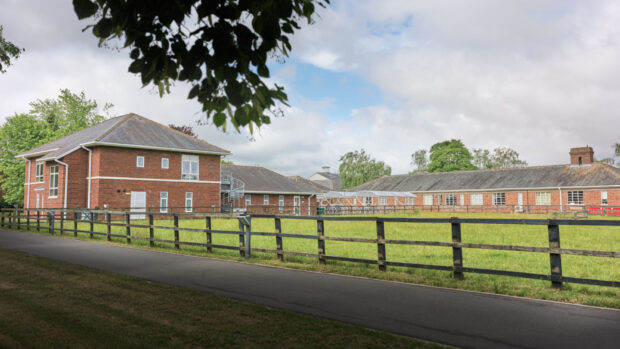Urgent changes are needed to the “outdated” Veterinary Surgeons Act say veterinary professionals – as calls for new legislation continue.
On 25 October the Royal College of Veterinary Surgeons (RCVS) met MPs, peers and stakeholders at the House of Lords to discuss the need to replace the Act with new legislation. It is hoped any replacement would include paraprofessionals, such as physios and equine dental technicians, becoming regulated under the RCVS umbrella, and the RCVS held a publication consultation for feedback on the topic last year (news, 25 February 2021).
The meeting focused on the “importance of a vet-led team” and it was discussed how the profession had changed since the Act was brought into force in 1966.
Lord Trees, a vet and former RCVS president, said the Act is “no longer fit for purpose” and there is an “urgent need for change”.
“The regulation of the veterinary professions is of utmost importance to animal welfare and all members of the veterinary team must be able to be held accountable for their actions, both for the protection of the animals under their care, and in terms of the wider public interest,” he said.
“The UK is proud of its world-leading approach to public health and animal welfare and, if we are to continue to uphold and champion our animal health and welfare standards, it is essential that we work and evolve together to create a Veterinary Surgeons Act which is not only fit for purpose now but will continue to serve us effectively for years to come.”
British Equine Veterinary Association (BEVA) projects officer Lucy Grieve told H&H BEVA commends the work being done by the RCVS in continuing to lobby for a new Act.
“While it remains a slow process, new legislation could provide greater protection for owners when allied professionals carry out work on their horses. At present there is no regulation for musculoskeletal therapists, equine dental technicians, or others, which means it is difficult for anyone to know who to choose, how qualified they are and whether they are accountable should something go wrong,” she said.
“New legislation could help ensure that only appropriately trained and regulated individuals are allowed to provide healthcare services to horses. Without set standards and clarity, the welfare of horses is put at risk.”
The Association of Chartered Physiotherapists in Animal Therapy (ACPAT) attended the RCVS meeting and a spokesman told H&H the organisation is advocating for “specific changes and considerations with welfare at the forefront”.
“It is essential that all parties work together to provide optimal care for our patients. ACPAT believes animals should be provided with the same level of care as is offered within human medicine; within human medicine physiotherapists are an integral part of the multidisciplinary team and a close working relationship usually exists between the medical team and healthcare allied professionals,” said the spokesman.
“This ensures a holistic approach to patient care that aims to optimise wellbeing and outcome. This multidisciplinary approach also offers great benefit to our veterinary patients with collaboration between professionals helping to provide a full care package.”
An RCVS spokesman told H&H the society will continue to work with Defra and other stakeholders, and has followed up with MPs and peers who attended the meeting to have “more in-depth conversations about the campaign”. But the spokesman added that the parliamentary process is “out of the RCVS’s hands”.
“For new legislation to be passed, it is very much dependent on current priorities within Defra, the Government’s overall agenda, when parliamentary time can be secured and current competing bills within the Defra and animal welfare sphere,” he said.
A Defra spokesman told H&H the department is “aware of the views of the veterinary profession and the many potential benefits associated with updating the Act”.
“The department is currently unable to provide a timescale as to when any reforms might take place. When reforms are taken forward, all of the proposals will be subject to a public consultation,” he said.
You might also be interested in:

Physios and dental technicians could come under vets’ umbrella in law reform

Equine flu vaccination shortage remedied – as multiple outbreaks occur

Subscribe to Horse & Hound magazine today – and enjoy unlimited website access all year round
Horse & Hound magazine, out every Thursday, is packed with all the latest news and reports, as well as interviews, specials, nostalgia, vet and training advice. Find how you can enjoy the magazine delivered to your door every week, plus options to upgrade your subscription to access our online service that brings you breaking news and reports as well as other benefits.




